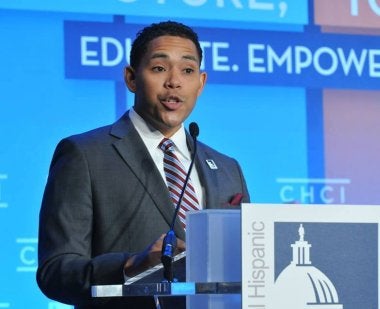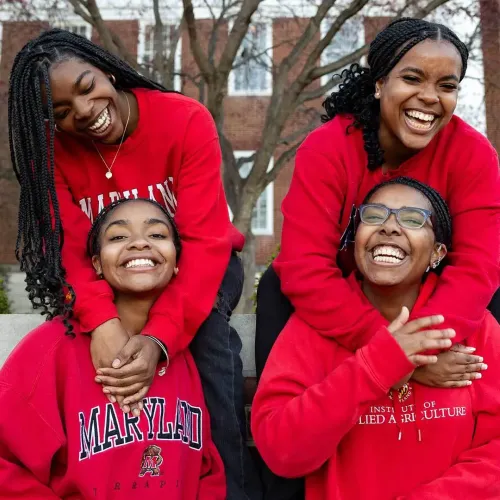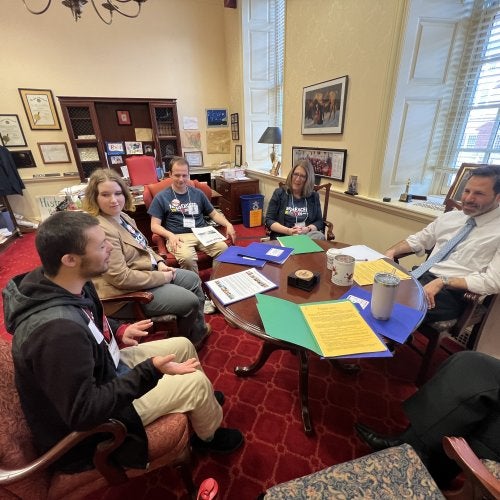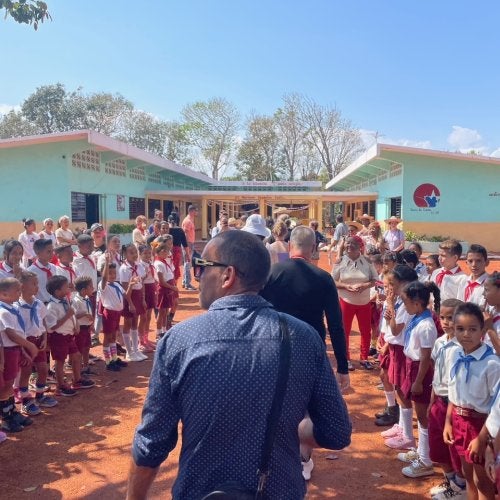
COLLEGE PARK, MD (March, 2017) – A college degree should be a fast ticket to prosperity and success, shouldn’t it?
Amilcar Guzman, a third-year doctoral student in the COE’s Higher Education program whose research focuses on postsecondary outcomes for Latino students, has found that higher education does have its benefits, but the resulting debt can also hold recent graduates back from buying a home, saving up for retirement or take other steps that can help them accumulate wealth down the road, especially for students of color.
“A growing number of Latinos have bachelor’s and master’s or law degrees, but owe tens of thousands of dollars and they can’t do these things education is supposed to allow you to do,” Guzman said.
The topic hits close to home for Guzman, a first-generation college graduate born to Dominican parents who also earned a master’s degree at the University of Maryland after graduating from Lycoming College in Pennsylvania. While there are financial resources for students of color who are starting college, the same support isn’t there for college graduates, he said.
“After I finished, being a first-generation college student, things didn’t get much easier. They had gotten much harder,” he said. “I didn’t know how to navigate a 401k or (do things like) run for office. (College graduates) are more likely to have a 401k or be publicly engaged … but I wasn’t seeing that in myself or among my peers.”
Guzman hadn’t considered going to college until he was in the 10th grade, when he had a talk with a cousin about the importance of higher education, though he has had an active career in public service in the years since attending college.
Guzman was chosen as a 2008-2009 Public Policy Fellow for the Congressional Hispanic Caucus Institute (CHCI) in Washington, D.C., and has lived in the area ever since. In early 2017, he was elected the national president of CHCI’s alumni association.
Currently, he serves as the director for data and evaluation at CASA—an organization that works with low-income immigrant communities in Maryland, Virginia and Pennsylvania—where he’s been working for three years.
“The demographics of this country are changing, and changing rapidly,” he said. “As the country continues to become more diverse, education and higher education in particular, play a role to provide tools to become productive members of society. Without that, it’s tough for us to remain a world power. The baby boomers are retiring, and the new workforce is more diverse.”
In addition to his local outreach, Guzman is also working to bring more awareness to the issues he is studying through writing for national outlets like the Huffington Post, Latino Rebels and Latino USA.
Guzman’s passion for his work is notable, said KerryAnn O’Meara, a professor in the Department of Counseling, Higher Education, and Special Education, who served as Guzman’s advisor for the first two years of his doctoral program.
“He is a wonderful student. He has taken advantage of opportunities, used feedback to improve his writing, and been very active as a professional in policy-making and advocacy circles,” she said. “I was especially proud to see how he has developed his voice as a scholar-activist, getting editorials published on important issues in places like the Huffington Post.”
Guzman, in turn credits his professors and classmates with making his experience at UMD top-notch.
“It really is the people that has really stuck out to me and the connections I’ve made in my time here,” he said.



